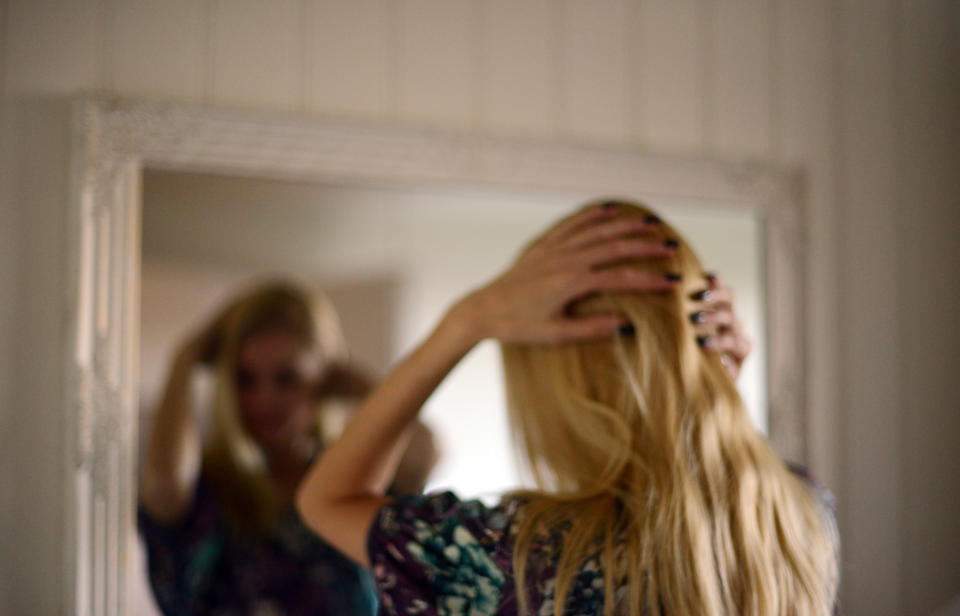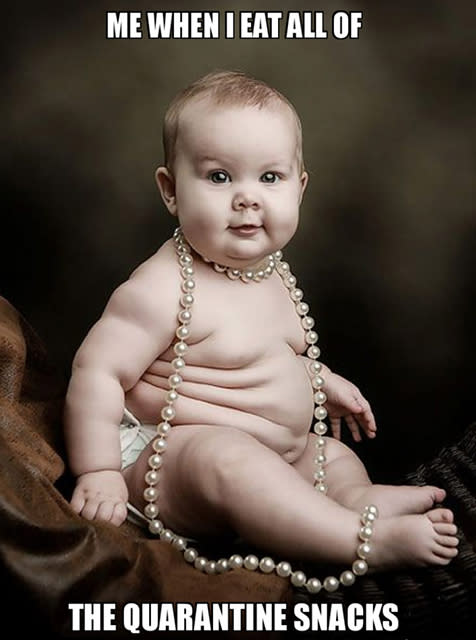Experts warn of 'alarming' coronavirus eating disorder trend
Experts are warning of an alarming uptick in serious mental illnesses in Aussies since the coronavirus hit our shores and it’s eating disorders that may be facing the most dangerous increase of all.
The Butterfly Foundation has reported a concerning increase in requests for support for eating disorders since states across the nation went into lockdown in March, sparking concern the lockdown is linked to an increase in eating disorders and disordered body image.

Demand for the Foundation’s online support service has jumped a frightening 116% in the past year.
Meanwhile, calls to the national helpline at the peak of the lockdown – between January and June – jumped 25%.
In Victoria, since the state reentered stage four restrictions, demand has jumped 30%.
The figures have experts calling for greater awareness of the rise of the insidious illnesses, which have the highest mortality rate of any mental illness, during the lockdown period.
Experts says spike ‘needs to be taken seriously’

Psychologist and the Butterfly Foundation’s National Helpline Manager Juliette Thomson tells Yahoo Lifestyle the spike cannot be underestimated.
“This spike needs to be taken very seriously because eating disorders have the highest mortality rates of all mental illnesses, and are also associated with higher rates of suicide,” she says.
She is concerned that despite staggering numbers of sufferers, not enough Aussies are receiving help to deal with the often devastating impacts of the illnesses.
RELATED:
“Generally speaking, over a million Australians are currently experiencing an eating disorder, yet less than a quarter are getting treatment or support,” she says, describing eating disorders as ‘complex and enduring’.
Eating disorders are unique mental illnesses in that they have serious consequences on both mental and physical health, with severe eating disorders able to prompt long-term and sometimes irreversible damage to the brain, bones and organs.
Why is lockdown impacting eating disorders?
It seems clear the jump in numbers has something to do with the lockdown period, but what exactly is impacting the uptick may surprise you.
Juliette says it’s both the stress and anxiety of an unprecedented situation, as well as, oddly enough, the increase in time spent on Zoom and social media that could be to blame.
“Contacts to the helpline are mainly telling us that food shortages, isolation, increased exposure to one’s own appearance on Zoom calls and the increased amount of time spent with family are all particularly triggering stressors that exacerbate or result in eating disorder thoughts and behaviours,” she says.
It seems the pressure to ‘optimise’ your lockdown and share it online, and the fear of emerging a slightly less shiny version of yourself are massive factors contributing to the increase.

The problem can be best summarised by the onslaught of ‘iso weight gain’ memes that are littering our newsfeeds. We have all made them, shared them, maybe even giggled at them. It seems likely that we have also subtly internalised them, and their message that if you do gain weight in isolation it is something to be mocked.
Type isolation weight gain into google and the headlines that pop up speak for themselves.
‘How To NOT Get Fat While You Self-Isolate’.
‘Easy tips to manage weight gain during self-isolation’.
Or even something as direct as: ‘Lose weight: How to fight lockdown weight gain’.
Juliette says the uptick in anti-weight gain articles and memes is ‘troubling’.
“We have heard from many people that they have felt a certain pressure to adapt and optimise their way of life during COVID-19,” Juliette says.
“Social media has been particularly damaging to some people as they compare their own COVID-19 routines to that of others online who are engaging in extreme exercise routines, adhering to or promoting strict diets to counteract the elusive ‘iso weight gain’ that seems to be the key focus of memes and conversations on social platforms.”
Signs you could be struggling with a body image or eating disorder

Of course, we all have days that we’re not rapturously in love with our bodies, but how do you know when dissatisfaction crosses into disordered territory?
The Foundation has some guidelines for signs that your, or a loved one’s, eating may be in trouble:
Inability to concentrate or focus at tasks at work or in school/university due to consistent thoughts and concerns around one’s body and weight
Desire to engage in high levels of exercise frequently, to a point where this impacts on day to day life. As well as experiencing high levels of distress when unable to exercise in a desired way
Significant changes in patterns of eating and types of food an individual may or may not eat. Similarly, to a point which may impact on other parts of life, such as not attending social events due to concern around food being offered
Avoiding seeing self in a mirror or wanting to shower due to concerns around weight or body
As for what you can do to minimise our exposure to triggers, Juliette says above all reaching out for help must be the first step.
“We would recommend talking to someone you trust about your concerns or talking to a health professional,” she says.
When it comes to minimising the harmful messages we may be receiving during lockdown, it’s probably time to switch off your phone.
“Switch off media and social media – the intense coverage and conflicting messaging being shared across all platforms can increase feelings of anxiety and depression and also contribute to an increase in eating disorder thinking and behaviours,” she suggests.
“Above all, remember to be kind to yourself – take it one moment and thought at a time.”
If you are in Victoria you can contact the Eating Disorders Victoria Helpline on 1300 550 23.
If you or anyone you know is experiencing an eating disorder or body image concerns we encourage you to reach out for support. You can call the Butterfly Foundation National Helpline on 1800 33 4673.
For urgent support call Lifeline 13 11 14.

 Yahoo Lifestyle
Yahoo Lifestyle 



